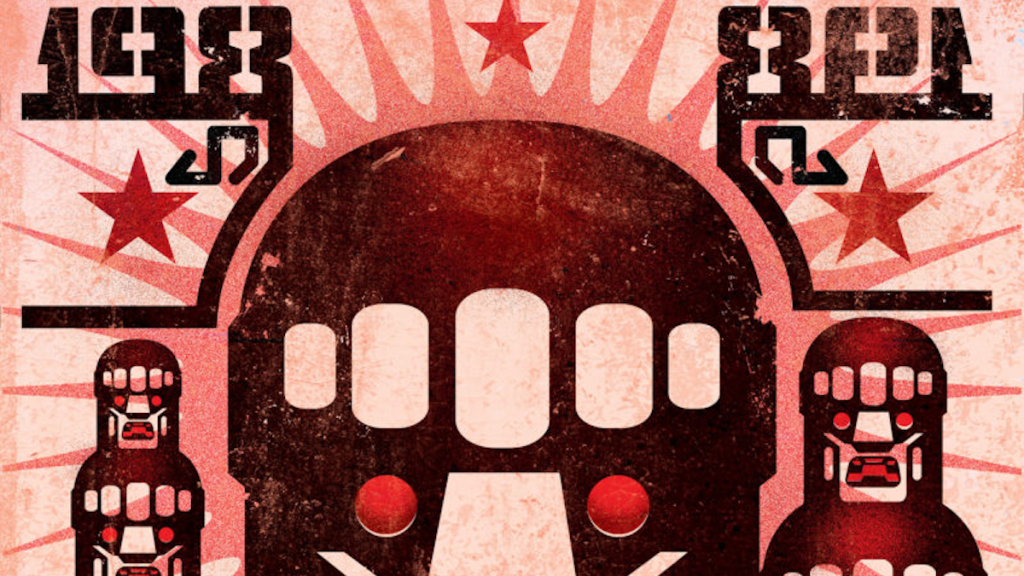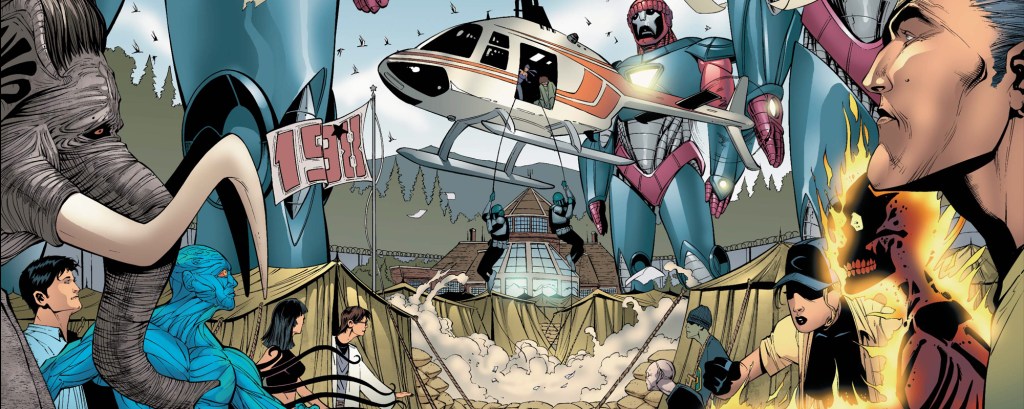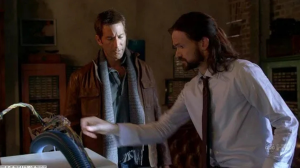Among the chronicles of the X-Men are countless tales of heroism but it is their capacity to cast light on tragic and consequential events that makes their stories so uncanny. The Scarlet Witch’s hex-magic transformed the world when she decreed, “No more mutants,” and the five-issue limited series, X-Men: The 198 explores the consequences of her withering pronouncement that decimates mutantkind. This forgotten X-Men story is a cautionary tale set in a mutant refugee camp established on the ruins of the Xavier Estate and its alarming symbolism is more relevant today than ever.
Videos by ComicBook.com
The X-Men are archetypal and their stories, and the characters within, can be seen as representations of the struggle between mutant aspirations for equality and the predictable intolerance of humanity. On M-Day, 90% of world’s mutants lost their powers to the Scarlet Witch’s command, effectively stripping of them of their identity and whittling a population of two million down to a mere 198. To exploit the catastrophe, the Office of National Emergency (O.N.E.) is established and the White House issues a series of Executive Orders in face of “the continued and immediate threat of superhuman attacks on the United States.” The elite Sentinel Squad O.N.E. is sent in to enforce the government’s mandate and the remaining mutant refugees are forced into an internment camp on the ruins of the Xavier Estate while the iron giants stand silent watch. X-Men: The 198 depicts the dire circumstances in the relocation camp with squalid tents shored up with sandbags, encircled by towering walls lined with barbed wire. The story-arc is supplemented with a dossier complied by Deputy Director Valerie Cooper of O.N.E. from files obtained from C.S.A. and S.H.I.E.L.D., the X-Men: 198 Files, a mutant database profiling nearly all of the 198 mutant refugees encamped at Xavier’s Estate. Data is always harvested by regimes intent on weaponizing information.

Curiously, mutant figureheads Scott Summer and Emma Frost seek to navigate a neutral ground in the series, operating out of the still-standing Xavier Institute for Higher Learning with the cluster of refugees huddled in its shadow. Their tenuous alliance with O.N.E.’s Deputy Director Cooper put them at odds with the displaced mutants who find the X-Men’s motivations dubious as well as with their teammates Bishop, Beast, and Kitty Pryde. Kitty is so repulsed by the notion of what she regards a “concentration camp” that she abruptly leaves a meeting with Deputy Director Cooper citing her moral objection to the scheme. When Emma chastises Kitty for being an “attention-seeker,” Beast is quick to remind her that Kitty’s relatives died in Auschwitz.
[Related: 10 Best X-Men Stories of all Time]
The compelling yet equally dismaying series, written by David Hine and illustrated by Jim Muniz in 2006, is an eerie reflection of recurrent themes in history and Juan Doe’s evocative covers are inspired by both revolutionary street-art and stark state propaganda. The Purity, skinhead toughs emboldened by prevailing public sentiment and fueled by government disinformation intimidate society’s most vulnerable population, asserting the camps “are for their own protection.” It’s a tale that’s been told before. History’s most infamous chapters detail the repeated rise of totalitarianism and how innocents are rounded up under false pretenses and forced into internment sites for their own well-being. The Trail of Tears, the cattle-cars bearing their ghastly cargo to death camps in the Polish wilderness, and the sordidness of modern-day refugee camps in Syria illustrate the arc of inhumanity that has plague the world’s history. X-Men: The 198 is an allegory for such events and through its characters one can glimpse the cruelties inflicted on the powerless and the embers of hope that lives on in the survivors. In the series, the learned Beast of the X-Men speaks of “relocation centers” like the 198 camp as “euphemisms they used in the 1940s for Japanese American internment camps.”

In X-Men: The 198, as in the seminal X-Men: Days of Future Past and X-Men: God Loves, Man Kills, mutantkind see the steady creep of authoritarianism take hold of society and humanity’s inevitable march toward a final solution. Art reflects life and sometimes, that reflection is like looking into a black mirror, revealing the dark horrors of a society that oppresses the powerless and in which the most vulnerable can be targeted with political violence and incarcerated without due process of the law. Readers turn to comics to escape but In a world fraught with such uncertainty, there’s value in turning to tales of courage like The 198, still mutant and proud.
What do you think? Let us know in the comment section.








